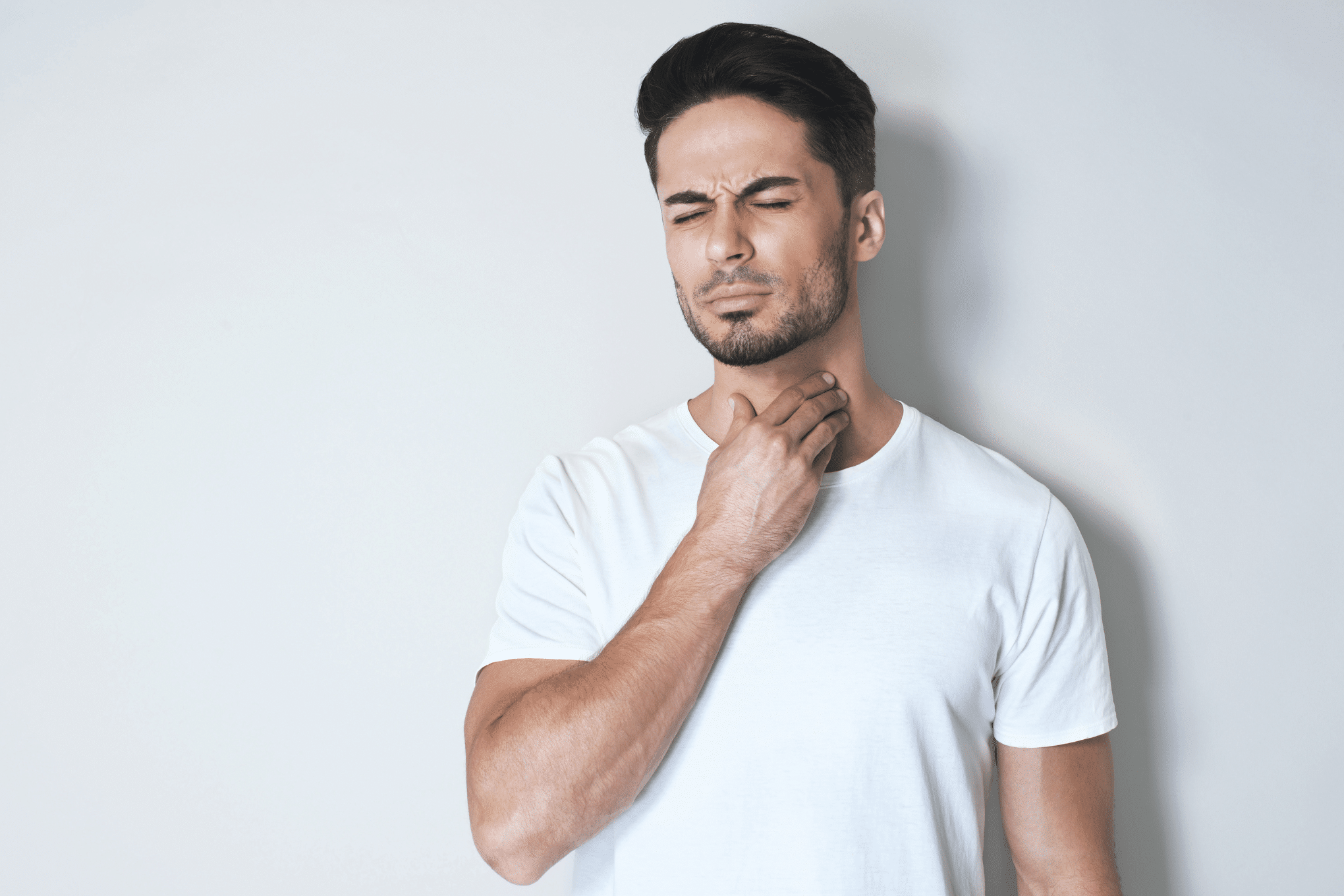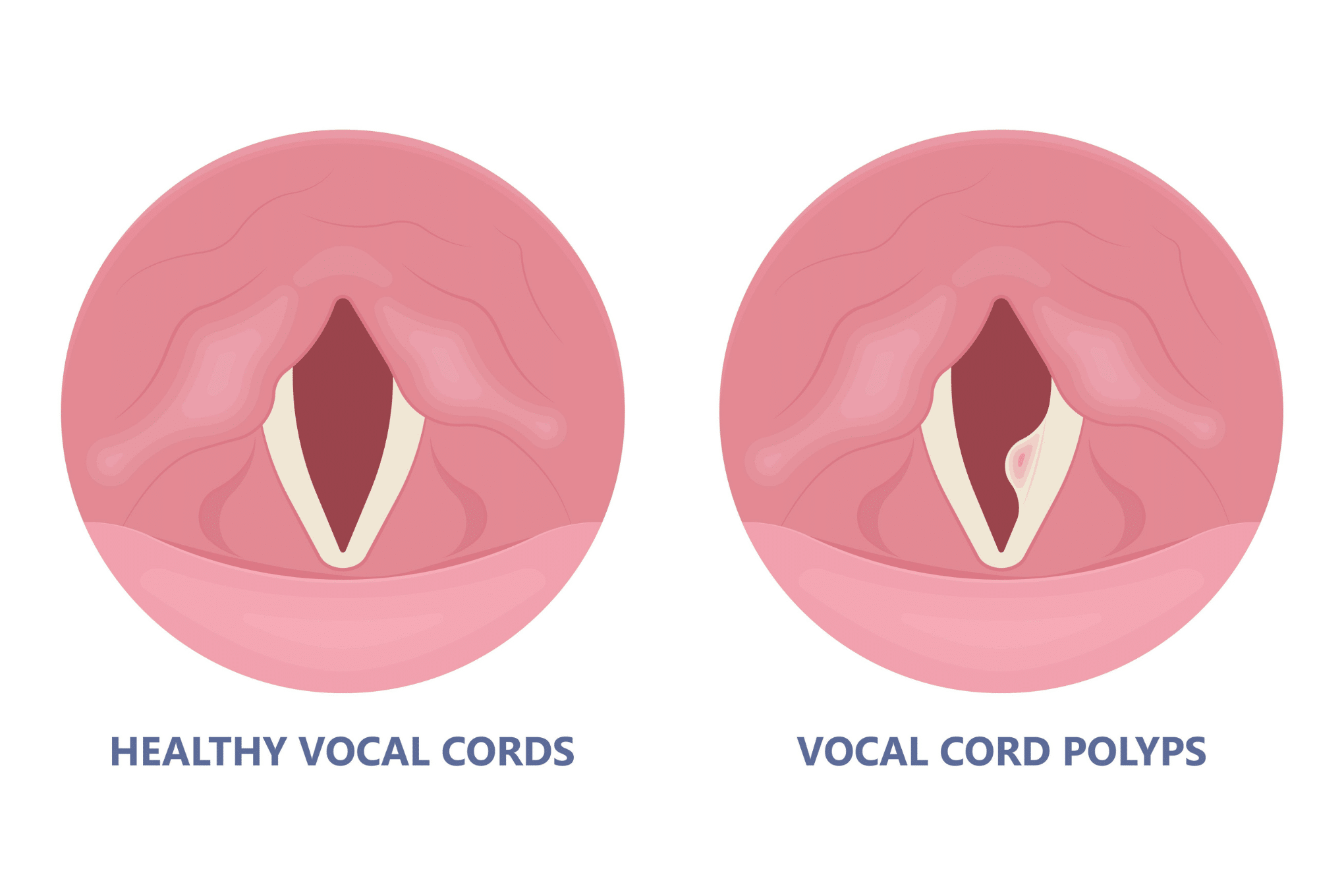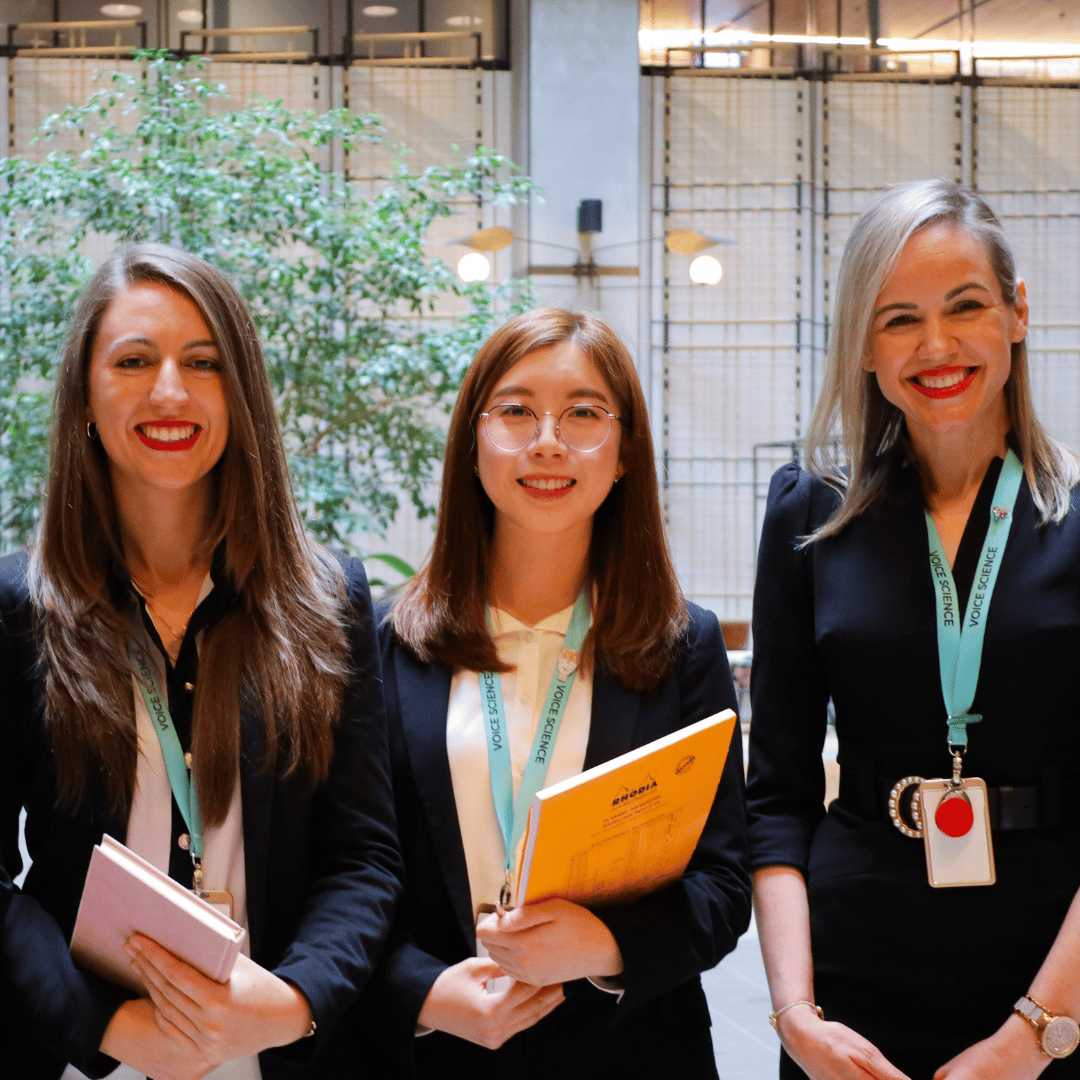Voice Therapy Vocal Fold Polyps in Melbourne and Online
Learn about treatment options at our voice clinic for your recovery.

Vocal polyps are non-cancerous lumps that typically occur on only one of the vocal folds, technically referred to as unilateral, benign lesions. Vocal fold polyps can be red in colour and blood-filled, or clear and translucent (Vasconcelos, Gomes and Araújo, 2019).
There are different types of polyps:
- Pedunculated: attached to a vocal fold by a stalk of tissue
- Sessile: attached to the vocal fold/mucosa with a broad base
- Hemorrhagic: bleeding into the vocal folds and looks like a blood blister
(Casper and Leonard, 2006; Vasconcelos, Gomes and Araújo, 2019)
How are vocal fold polyps different from nodules? 🤔
Polyps and nodules are similar in terms of vocal symptoms and development, however polyps are typically larger and more vascular than vocal fold nodules, with increased blood vessels and can appear red. Another key difference is that nodules are bilateral, meaning that they occur on both vocal folds. In contrast, vocal fold polyps tend to be unilateral, only on one vocal fold, but can also be bilateral (Casper and Leonard, 2006).
How and why do vocal fold polyps develop?
Polyps develop as a result of a person’s behavioural use (or misuse!) of the vocal folds or due to poor vocal fold hygiene, including excessive talking or high-intensity voice use. However, other factors can contribute to the development and severity of polyps, including smoking, reflux and even inhalation of strong chemicals (Vasconcelos, Gomes and Araújo, 2019).
Polyps generally develop over time but can occur due to a single traumatic vocal event such as yelling at a concert or a sporting match. Sudden onset tends to indicate hemorrhagic polyps and results in the immediate loss of your voice (Casper and Leonard, 2006).

What are some typical symptoms of vocal fold polyps?
Vocal symptoms that may be indicative of vocal fold polyps include:
- Hoarseness (primary voice symptom)
- Roughness
- Breathiness
- Vocal fatigue
- Abnormal throat sensation
Vocal fold polyps interfere with vocal fold function and impact the movement of the vocal folds necessary to make sound, technically speaking, the mucosal wave, vocal fold closure and symmetry of the vibratory pattern (Agarwal, Wong, Karle, Naunheim, Mori and Courey, 2019; Casper and Leonard, 2006; Vasconcelos, Gomes and Araújo, 2019).
If you’re looking for a team of voice therapists with both expertise and experience, look no further than the speech pathologists at Voice Science. When you complete a Voice Assessment, one of our skilled clinicians meticulously transcribes your vocal health, hygiene and function, meaning that your one-on-one voice therapy program will be specific to you.
How are vocal fold polyps treated?
Previously, the gold standard for treatment of vocal fold polyps was surgery. However, as the causal factor tends to be vocal use/abuse, speech therapy intervention is essential to address the underlying cause (Agarwal et al., 2019).
Speech therapy is slowly emerging as the primary treatment for vocal fold polyps, with surgery then considered for polyps that do not respond to behavioural treatments, or if the voice user does not like their voice quality or needs an immediate response. If surgery is recommended for you, speech therapy will be an essential component of your rehabilitation to ensure that polyps don’t return (Vasconcelos, Gomes and Araújo, 2019).
Research has also highlighted that speech therapy intervention during the preoperative period may decrease or heal the polyps, reducing the need for surgery. Many studies found that for many clients, speech therapy eradicated the need for surgery (Vasconcelos, Gomes and Araújo, 2019).
If surgery is required, surgical treatments may involve the use of an endoscopic laser, flexible laryngostroboscopic surgery, steroid injections and/or reflux medication (Vasconcelos, Gomes and Araújo, 2019). If this applies to you, it’s crucial that your medical and allied health team liaise with each other to ensure the best surgical outcomes.
What exercises will help vocal fold polyps?
Retraining your vocal muscles is critical for effective coordination of the breath, phonation and resonance. A good vocal hygiene routine will also optimise the health and function of your voice.
If surgery has been recommended, it is imperative that an individualised treatment program is developed for you. Following surgery, absolute vocal rest is typically recommended for seven days, with modified relative rest for another 3-6 weeks to allow the vocal folds to heal (Gökcan and Dursun, 2009). Again, vocal hygiene is essential, so maintaining adequate hydration, avoidance of smoking and other dehydrating chemicals or agents will assist in recovery and long term maintenance (Gökcan and Dursun, 2009).
Conversely, recent research discusses the negative impact that vocal rest can cause including increased muscle atrophy and further damage (Sataloff, Cline, Lyons, Skeffington and Rubin, 2019). Your Ear Nose & Throat (ENT) Surgeon and speech pathologist can work together to develop the most effective treatment protocol.
I think I have vocal fold polyps, what should I do?
Because we can’t see our vocal folds without specialist equipment, there is no way to confirm that we have a vocal fold polyp without a proper diagnosis. But do trust your suspicions if you have any of the symptoms mentioned above, they are a sign to get in touch with a speech pathologist or ENT.
If you’re concerned that you might have vocal fold polyps, the best starting point is to fill in our Voice Therapy Query Form below and we can get back to you with our recommendations.
The following steps are likely to include a diagnostic voice assessment by completing our Voice Tone Test. You might also like to take a look at our voice therapy options, but do trust that we will guide you through the process.
So, fill in the form below, and we look forward to assisting you with your voice needs!
References
-
Agarwal, J., Wong, A., Karle, W., Naunheim, M., Mori, M., & Courey, M. (2019). Comparing short‐term outcomes of surgery and voice therapy for patients with vocal fold polyps. The Laryngoscope, 129(5), 1067-1070.
-
Casper, J. K., & Leonard, R. (2006). Understanding voice problems: A physiological perspective for diagnosis and treatment. Lippincott Williams & Wilkins.
-
Gökcan, K. M., & Dursun, G. (2009). Vascular lesions of the vocal fold. European archives of oto-rhino-laryngology, 266(4), 527-533.
-
Sataloff, R. T., Cline, S. E., Lyons, K. M., Skeffington, J., & Rubin, A. D. (2019). Voice rest. Journal of Singing, 75(5), 557-564.
-
Vasconcelos, D., Gomes, A., & Araújo, C. (2019). Vocal Fold Polyps: Literature Review. International Archives of Otorhinolaryngology, 23(1), 116-124.
